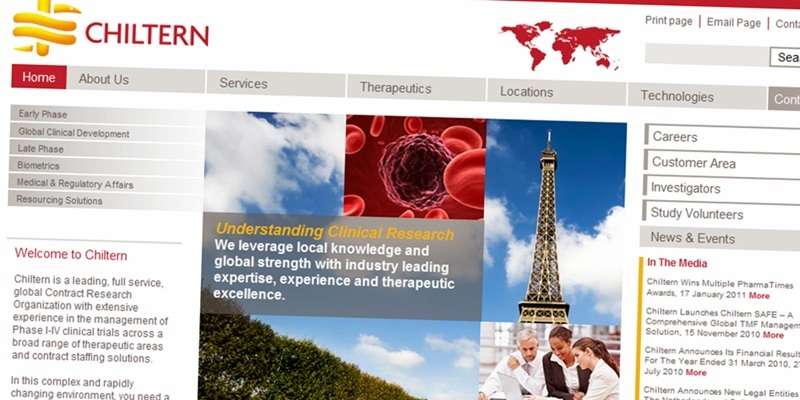A Dundee drug-testing clinic is facing closure with the loss of 24 jobs because of the “difficult” conditions in the global market for the development of medicines.
Chiltern (Early Phase) Ltd has its own unit at Ninewells Hospital, which is the last commercial facility of its kind in Scotland.
Management at the Slough company have proposed closing the Dundee clinic and has started a 30-day consultation period with staff into shutting the doors of an operation that, under a previous name, was one of Dundee University’s first spin-out companies.
Chiltern manager Barry Silverstein said the closure was a proposal and it was up to staff to come up with alternative plans.
He would not speculate on these, but agreed they could include a management buy-out by the Dundee workforce.
A further possible outcome could be a takeover by another company involved in trials of new drugs, and he said Chiltern had spoken to others in the industry.
Asked what would happen to the management, clinical and administrative staff if the Ninewells facility does close, Mr Silverstein said they could be considered for work in alternative positions with the company “if suitable positions become available.”
Chiltern has an office in Edinburgh and also has staff in field work around the country, he said, so it was not necessarily the case Dundee staff would have to move away from the city.
He stressed, however, this option depended on positions becoming available.
The company began life as Drug Development Scotland Ltd nearly 30 years ago as a commercial spin-out from Dundee University under the late Professor Ian Stevenson.SuccessIt enjoyed considerable success in its early years conducting clinical trials of new drugs on healthy volunteers.
Drug companies from around the world sent their new medicines for trials to Dundee, impressed by the quality of the clinic’s work and its close links to Dundee University and Ninewells Hospital.
The company changed its name to DDS Medicines Research and moved into a 42-bed unit attached to Ninewells, having previously leased unused wards at the hospital.
After another name change to Drug Development Solutions, the company ran into trouble and went into liquidation, with debts of about £1.3 million.
Chiltern took over in February 2008 with a workforce of about 40, but at the end of the following year it had to shed a third of its Dundee staff as trading conditions grew more difficult.
Mr Silverstein said the climate has not improved for first phase drug trials the primary stage of new medicines being tested on humans and a process that can take more than a decade before drugs can gain a commercial licence.
“It is a very difficult market for first phase trials because of competition globally for this type of work,” he said.
“There is intense competition from countries around the world with lower costs than in the UK and the global industry is not investing in the research and development of new medicines as much as it used to.
“This has created a lot more pressure on companies involved in trials and has led to our proposal to close our facility in Dundee.”
Mr Silverstein said the Dundee situation did not affect the future of Chiltern at large, a company that employs nearly 1400 staff globally, with a presence in more than 40 countries.
The company’s website states, “We are located strategically in the Asia Pacific region, Europe, Latin America, North America and South Africa to align with and respond to our clients’ evolving needs.”
An illustration of the challenging conditions facing the pharmaceutical industry was seen in February when US firm Pfizer announced it was closing its research centre at Sandwich in Kent, the European hub of its research and development activities, with the loss of 2000 jobs.
That site was responsible for major discoveries such as the anti-impotence drug Viagra.
